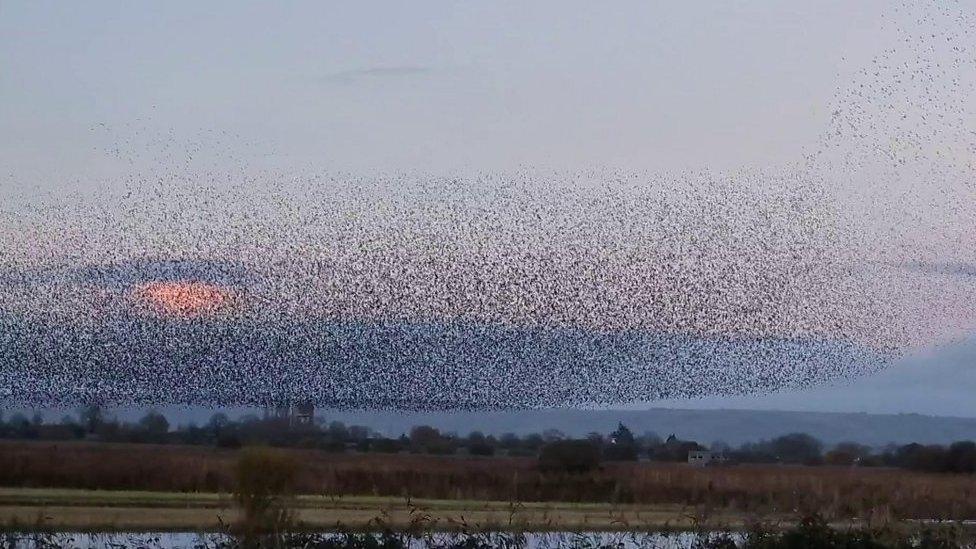AI analyses bird sounds for Somerset conservation project
- Published
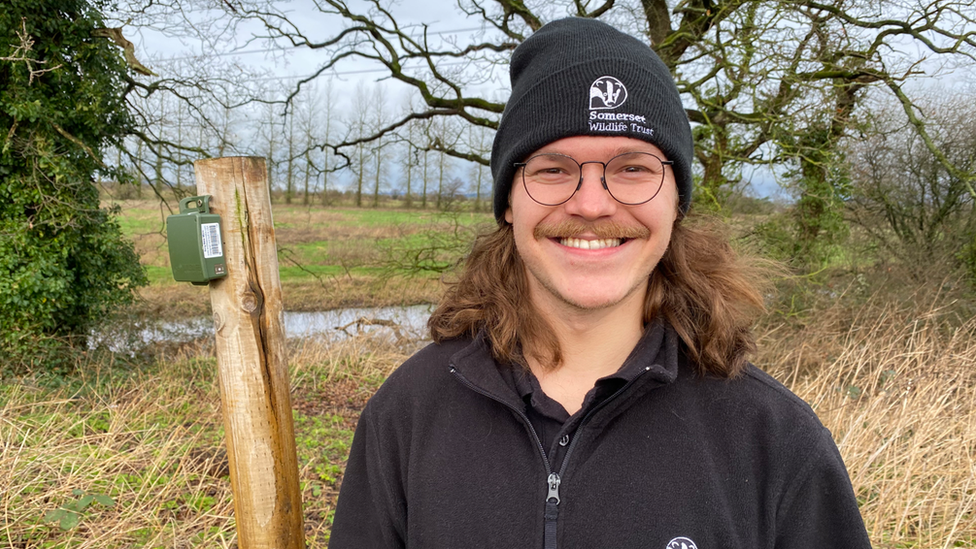
"We're willing to be surprised by what happens," Mr Hampson said
Conservationists are using artificial intelligence to identify and monitor bird populations by recording their songs.
Somerset Wildlife Trust is restoring peatland at the former dairy farm Honeygar near Westhay.
The charity hopes to make the area a better habitat for wetland species.
Conservationists are using microphones to listen out for bird songs to monitor the population.
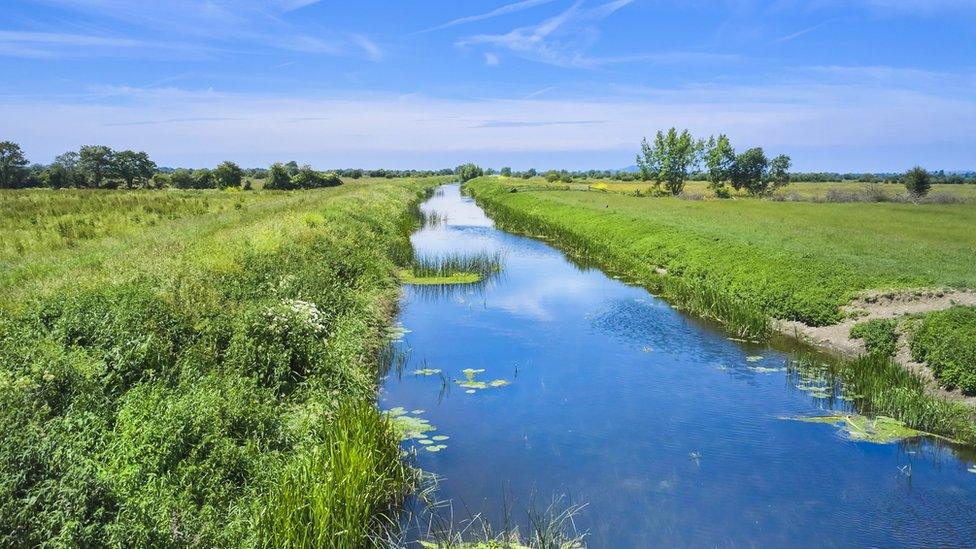
The trust is restoring peatland at the former dairy farm Honeygar
There are four of these microphones dotted around the 81 hectare site, listening out for birdsong, which is then analysed by artificial intelligence.
The trust then uses the information to monitor bird populations and how they are changing.
The project has been running continuously for the past 15 months.
In that time, the most common birdsong recorded on the site came from wrens, jackdaws and goldfinches.
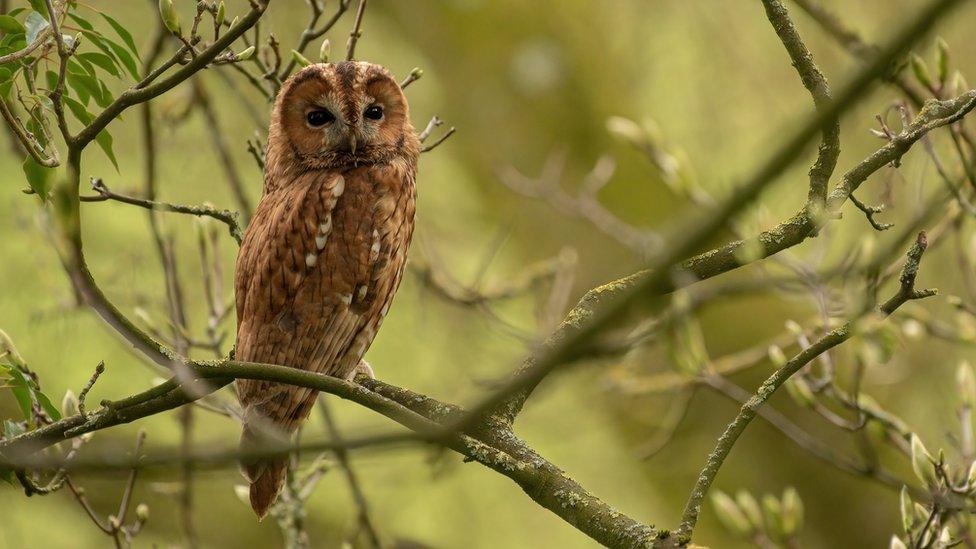
Conservationists are using microphones to listen out for bird songs
Joe Hampson, at the trust, said they have 1.3m species recordings from the site.
"It's a staggering number," he said. "It shows we're in a new age of data collection."
Geoff Carss, CEO at Wilder Sensing, who developed the technology for the project, said: "We take a species like the robin and take hundreds of recordings, feed them into the machine learning model and over time you have a big library of these things.
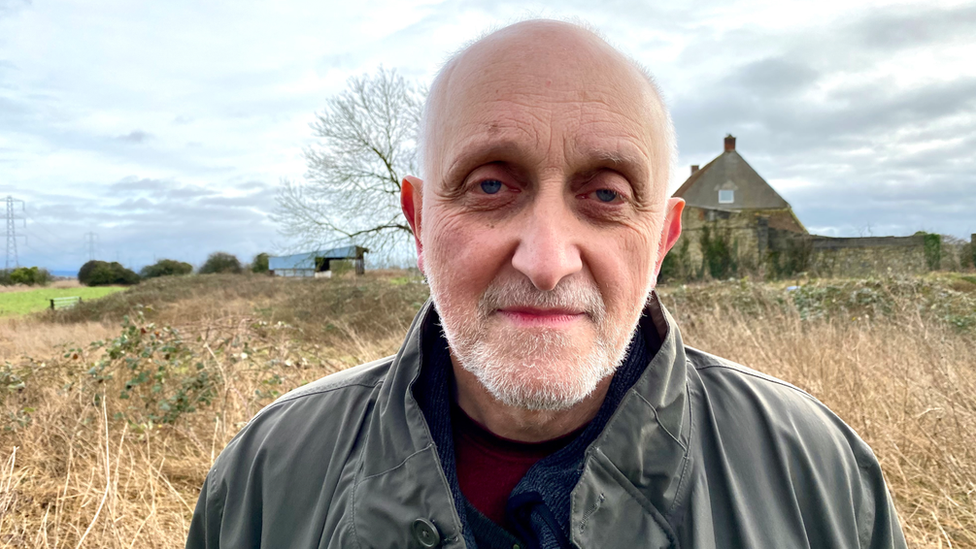
Geoff Carss said the AI uses a library of bird songs to identify different species
"It will sample sounds and go: 'I'm 83% certain that was a robin.' It takes about 30 seconds."
Mr Hampson added: "We will be expecting more wetland species to be utilising the site, but we're willing to be surprised by what happens.
"It's going to be really exciting."

Follow BBC West on Facebook, external, X, external and Instagram, external. Send your story ideas to: bristol@bbc.co.uk , external
Related topics
- Published25 January 2024
- Published29 November 2022
